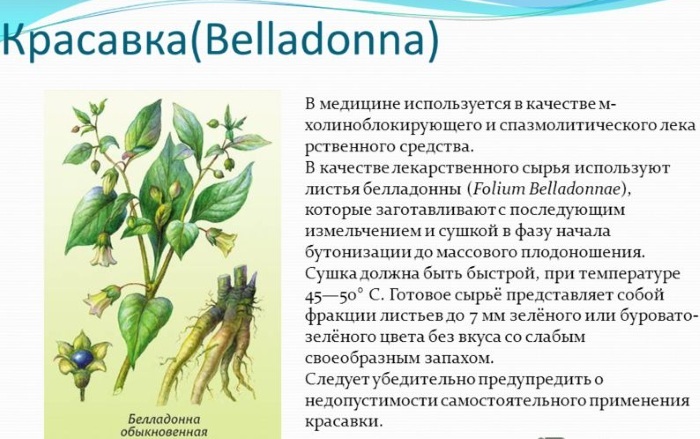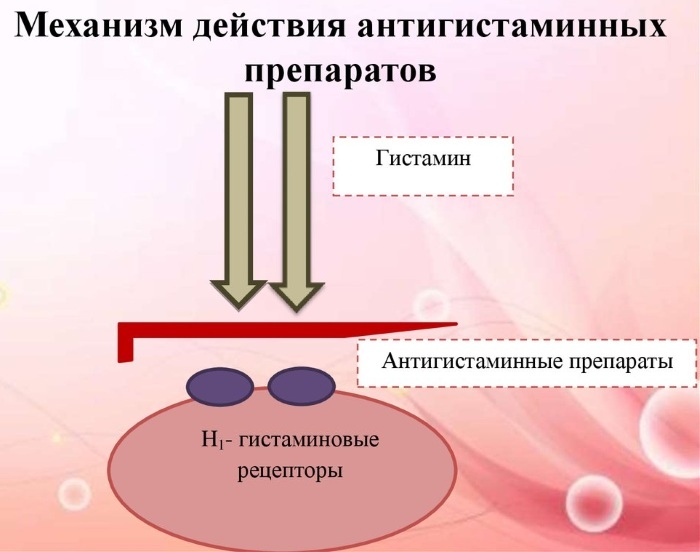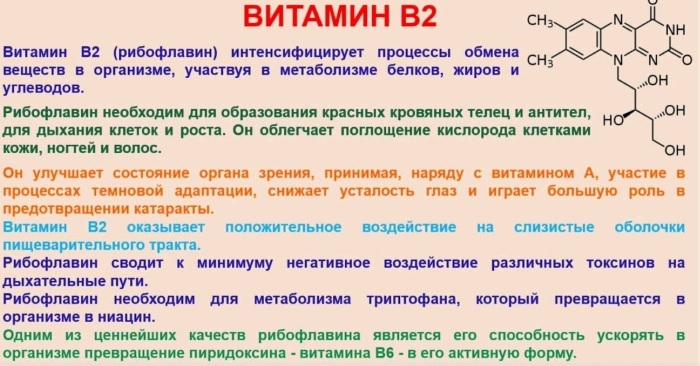Perennial plant of the aster family echinacea - a natural immunomodulator with antioxidant and anti-inflammatory properties. On its basis, multivitamin complexes, drops for children, and other medicines are produced. The plant suppresses the vital activity of pathogenic microorganisms.
Record content:
- 1 Indications for use
- 2 Compound
- 3 In what form is it produced?
- 4 Pharmacodynamics
- 5 Pharmacokinetics
- 6 Application for children under 18 years of age
- 7 Contraindications
- 8 Overdose
- 9 Side effects
- 10 Drug interactions
- 11 Storage conditions and periods
- 12 Conditions of dispensing from pharmacies
- 13 Analogs
- 14 Echinacea video
Indications for use
Echinacea is widely used in pediatrics due to its antibacterial, antifungal and choleretic effects. Children's preparations based on it eliminate allergic symptoms, normalize urinary function.
Medicines containing echinacea extract are used for:
- acute infectious infections that provoke inflammatory processes;
- skin destruction of anaphylactic genesis;
- herpes;
- any viral diseases;
- treating colds and seasonal flu;
- sleep disorders;
- unmotivated mood swings;
- increased irritability.
Echinacea - drops for children, which pediatricians prescribe to eliminate skin inflammation - purulent boils, acne and others. The drug is used to relieve a patient's condition with psoriasis.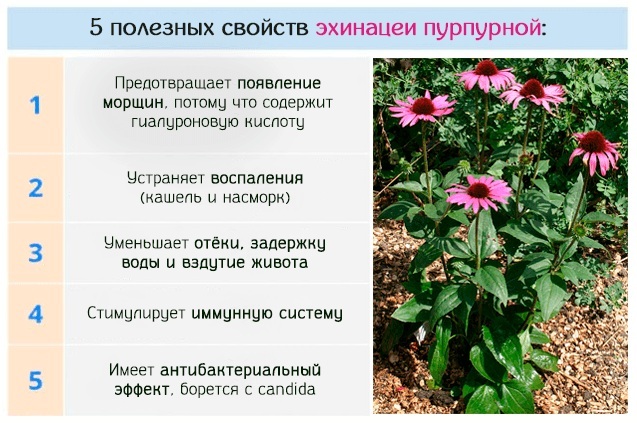
The medication has a calming effect, therefore it is often prescribed for reactive states of the psyche and nervous system - behavioral disorders, aggressiveness, hysteria.
A long course of treatment with antibacterial drugs leads to inhibition of the natural intestinal microflora. To restore it, Echinacea-based medicines are used in tablets, oral drops, in the form of a syrup.
A natural medicine is prescribed to restore the white blood cell count after chemotherapy. Echinacea speeds up the process of postoperative rehabilitation, helps with headaches and joint pain. Elderly patients are prescribed it for arthritis and arthrosis.
In children, with the help of oral drops or syrup with an extract of this medicinal plant, they are treated:
- coughing fits;
- bacterial infections of the upper respiratory tract;
- ear inflammations;
- sore throat;
- chronic rhinitis of inflammatory and allergic etiology.
Children living in regions with a damp climate or unfavorable environmental conditions are often prescribed echinacea for prophylactic purposes, to strengthen general and local immunities.
Compound
The chemical formula of such medicines includes vitamins, minerals and trace elements necessary for the normal development of the child's body. Preparations where echinacea acts as an active ingredient do not contain synthetic additives, therefore such medicines are considered absolutely safe.
The main components of the formula:
- alkylamides - biochemical compounds with analgesic effect;
- inulin - an organic polysaccharide that increases the number of leukocytes, which perform a protective function, inhibiting pathogenic bacteria and viruses;
- vitamin and mineral substances, playing an important biological role in the child's body;
- essential oilsthat improve respiratory function and have an immunostimulating effect.
Echinacea increases the number of phagocytes and intensifies the secretion of interferon, a specific immunocompetent protein.
Trace elements of the drug:
- sodium - maintains a normal level of osmotic pressure, participates in the formation of the electrical potential of cell membranes and the secretion of gastric acid;
-
potassium - Provides conduction of nerve impulses, maintains acid-base balance, regulates the rhythm of contractions of the heart muscle;
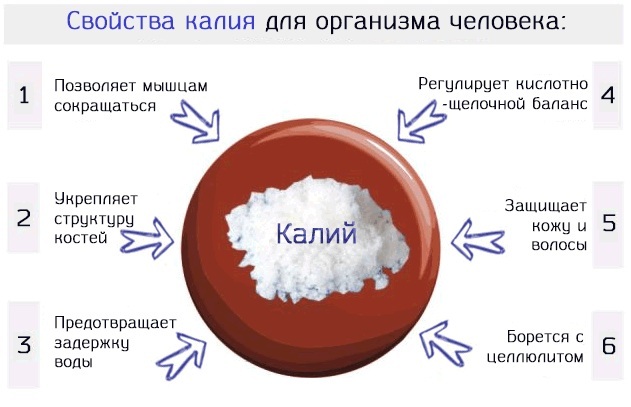
- magnesium - is responsible for protein and nucleic acid metabolism, regulates mitochondrial secretion, normalizes blood pressure, relaxes smooth muscles;
- selenium - realizes the antioxidant defense of the body, reduces liver intoxication, regulates the action of thyroid hormones;
- manganese - is a part of enzymatic compounds, performs a catalytic function, promotes protein synthesis.
Echinacea - drops for children, rich in flavonoids. These plant polyphenols lower cholesterol levels, protect low density lipoproteins from oxidation and premature decomposition, and have an antiplatelet effect.
Vitamins of the medicinal complex:
- retinol - participates in the renewal of epidermal cells, is responsible for the synthesis of the visual pigment rhodopsin, performs an oncoprotective function;
- ascorbic acid - promotes the production of a number of hormones, enzymes and collagen, has an anti-stress effect;
- tocopherol - enriches the blood with oxygen, protects cells from destruction, increases physical endurance.
The balanced composition of echinacea allows the use of drops or other medications for the treatment of a wide range of diseases and pathological dysfunctions.
In what form is it produced?
There are many echinacea-based medicines available. Homemade tinctures and decoctions are prepared from dried herbs sold in pharmacies. Echinacea extract is sold in dry or liquid form. It is loaded with water-soluble immunostimulating polysaccharides.
The liquid extract is released in a 100 ml dark glass bottle, placed in a cardboard box. Approximate price in pharmacies - 250 rubles. Echinacea dry extract is intended for dilution with water. Its composition is similar to that of a liquid solution. The drug contains non-cyclic sesquiterpenes, which inhibit pathogenic pathogens.
Oral drops are available in 50 and 100 ml vials. They increase the phagocytic activity of neutrophil cells and eliminate inflammation caused by the activity of pathogens. Price - 115-150 rubles, depending on the capacity of the bottle.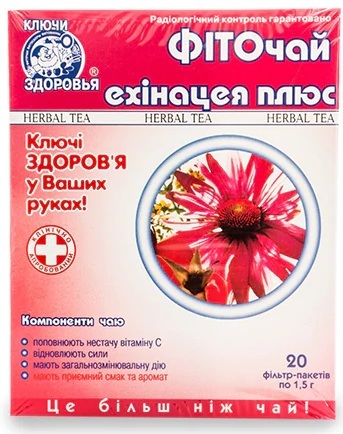
Packaged herbal tea based on Echinacea is intended for steeping with boiling water. Each filter bag contains 1.5 g of fine herbal powder.
Herbal tea is used as a dietary supplement. It has a general strengthening effect and increases the immune status of the body. The price of a pack of 20 packages is 60 rubles.
Lozenges containing echinacea are round, flat-cylindrical. Each unit of the drug contains 200 mg of active ingredient.
Such tablets belong to the category of bioactive additives. Pack of 20 costs about 200 rubles. There is a homeopathic echinacea solution for intramuscular administration.
It is used when it is necessary to quickly eliminate the inflammatory process or allergic symptoms. Each ampoule contains 2.2 ml of injectable medicine. In a contour package made of transparent medical polymer 5 ampoules. The price of a pack of the drug is 954 rubles.
Pharmacodynamics
The drug increases the immune status, increases the body's nonspecific resistance to the effects of almost all known pathogenic agents. The pharmacodynamic properties of echinacea are based on its ability to increase the activity of macrophages and granulocytes.
These cells suppress the vital activity of the pathogenic microflora. The drug enhances and accelerates phagocytosis - the physiological process of capture and neutralization immunocompetent cells of pathogenic pathogens, as well as foreign solid particles that provoke allergic reactions.
Echinacea, due to the biologically active substances contained in it, accelerates the release of cytokines - low molecular weight regulatory protein compounds that are synthesized by immune cells. Drops for children, tablets or injections activate the body's natural defenses.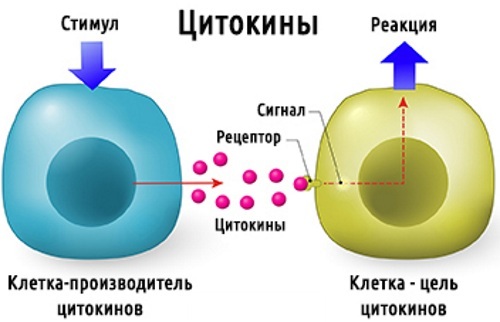
Cytokines are conductors of intercellular signaling that provide a high speed of the immune response and are involved in other vital physiological processes. Their release intensifies proliferation - reproduction, differentiation and increased activity of phagocytes.
Effective stimulation of the natural protective potential leads to the rapid elimination of inflammatory processes provoked by the activity of pathogenic microorganisms.
As a result of the pharmacological activity of the components of the drug complex, the concentration of globular protein in the blood serum, an important factor of the immune status, increases.
Some components of the rich chemical formula of echinacea have increased antiviral activity against strains of influenza and herpes. The components of the drug quickly inhibit tissue and microbial hyaluronidase - a special enzyme that increases the parameters of tissue permeability for pharmacologically active substances.
Pharmacokinetics
After taking the drug, its active substance and auxiliary components are rapidly absorbed into the bloodstream, carrying out the transfer of vitamins, minerals and trace elements to the tissues of the organs. Echinacea is absorbed in the small intestinal lumen, facilitating the breakdown and digestion of fats, proteins, carbohydrates from food.
An injectable medication has a faster and more pronounced clinical effect than oral solutions. It is used mainly in acute conditions, to relieve painful inflammatory and anaphylactic symptoms. The maximum concentration in blood plasma is observed after 3 hours. after oral administration.
Echinacea is metabolized by the liver and kidneys. The cleavage products of the drug have weak pharmacological activity. They are excreted 80% in urine and 20% during bowel movements. The drug increases the body's ability to withstand adverse environmental factors.
Application for children under 18 years of age
Age restrictions depend on the form of release of the drug. The tincture and oral drops contain ethyl alcohol. They are prescribed for children from 12 years old. To enhance the clinical effect of echinacea, pediatricians are often included in combination therapy.
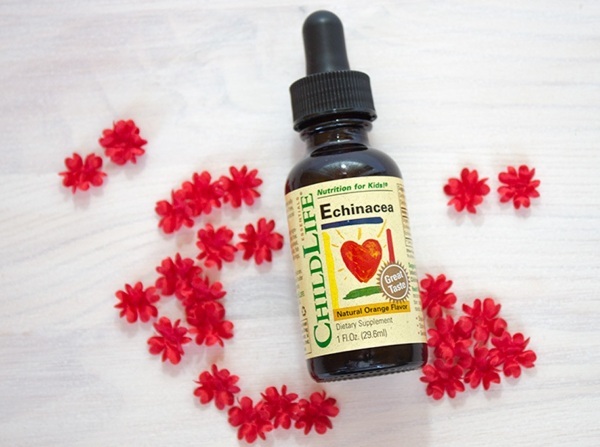
Children from 2 years old are prescribed herbal tea, tablets, vitamin complexes containing a medicinal plant. For preventive purposes, sweet syrup is used. It can be given to children 1 year of life. It strengthens the immune system and reduces the incidence of ARVI.
Standard dosages for children of different ages:
| Dosage form | Age | Admission rates |
| Oral drops | 6-18 years old | 10-15 drops, 3 times a day |
| Syrup | From 1 year | 3 drops per 1 tablespoon water |
| tea | From 6 months | 100 ml per day |
| Pills | From 4 years old | 1 tablet 3 times a day |
| Alcohol tincture | From 12 years old | 10-12 drops per 100 ml of water 2-3 times a day |
The injectable preparation is used for children intramuscularly or intradermally in the following dosages:
- 1-3 years - up to 0.5 ml;
- 3-6 years old - 0.6-1.0 ml;
- 7-12 years old - 1.0-1.5 ml;
- 12-18 years old - up to 2.0 ml.
The standard course of treatment is 6-8 weeks. As prescribed by the pediatrician, its duration can be increased. At home, children are given a decoction of echinacea. At the age of 4-7 years, it is recommended to take no more than 100 ml per day. Syrup for patients over 12 years old is prescribed 1 tbsp. 3 times a day.
Echinacea (drops for children) is often part of complex therapy. It is taken together with vitamins B and C. For the prevention of seasonal flu and colds, Echinacea is prescribed together with black elderberry extract. Children from 12 years old are given 3 times a day, 20 drops, diluted per 100 ml. water.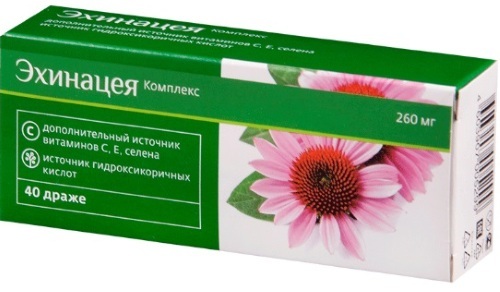
The tablets not only strengthen the immune system, but are also effective in the treatment of sinusitis, tonsillitis, tonsillitis. For inflammatory diseases, it is recommended to take special absorbable granules "Echinacea Forte". From 5 years old, the daily rate is 3-4 pcs.
Herbal tea in filter bags is brewed with boiling water and infused for about 15 minutes. Children from a year are given no more than 25 ml of such a medicine 4 times a day. Pediatricians prescribe alcohol tincture to adolescents for preventive and therapeutic purposes.
For young children who find it difficult to swallow medicines, a special series of vitamin pills containing echinacea has been developed. Some medicines in this category are made in the form of marmalade, marshmallow and candy.
Contraindications
Echinacea is a safe medicine made exclusively from herbal ingredients. It is used for children from an early age. However, there are a number of absolute contraindications and situational restrictions on the intake of drugs containing this medicinal plant.
Echinacea is not prescribed for patients with:
- individual intolerance to the constituents of the chemical formula of the drug;
- severe autoimmune pathologies;
- bronchial asthma and other acute respiratory diseases;
- systemic destruction of connective tissues;
- a tendency to idiosyncratic reactions;
- multiple sclerosis;
- immunodeficiency syndrome;
- critically low levels of leukocytes in the blood;
- pulmonary tuberculosis;
There are age restrictions on the use of preparations containing echinacea associated with dosage forms. 40% of the chemical formula of the tincture is ethyl alcohol. Therefore, it is not used to increase the immunity of children under 12 years of age.
Echinacea is not prescribed for progressive systemic disorders - collagenosis and others. Patients who have recently undergone surgery or organ transplantation should not take medication. Contraindications include chronic liver disease and renal failure.
Echinacea - drops for children that are not prescribed for allergies to plants of the Asteraceae family. Alcohol tincture should not be taken when taking a course of antibiotic therapy with drugs of the cephalosporin category.
Overdose
Exceeding the recommended daily allowance can cause typical signs of drug intoxication in children - dizziness, nausea and vomiting. Stool disturbances, sharp cuts in the abdominal cavity, temporary movement coordination disorders are possible.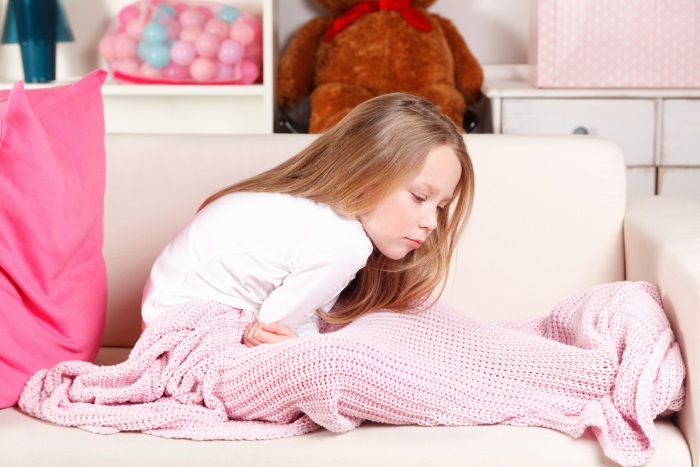
If you find such symptoms, you should contact your pediatrician. To eliminate signs of an overdose, the stomach is washed, and the child is given absorbents - activated carbon and others.
In the practice of using echinacea, no cases of overdose have been recorded. Therefore, they are guided by the typical symptoms of drug intoxication that occur when the established norm of other herbal preparations is exceeded.
Side effects
Taking echinacea can cause negative reactions in the body. They are often associated with hypersensitivity to drug components or overdose.
The most common side effects are:
- an allergic rash accompanied by itching;
- respiratory dysfunction;
- acute bronchospasm;
- drop in blood pressure;
- general weakness;
- decrease in body temperature;
- tachycardia;
- rapid pulse;
Cases of angioedema have been reported, which is caused by an acute allergic reaction to plants of the cruciferous family. With long-term treatment with echinacea, manifestations of hypertension and leukopenia are possible. Rarely, local erythema occurs - severe redness of the epidermis caused by the expansion of small subcutaneous capillaries.
The components of preparations based on Echinacea can irritate the mucous membranes, which is manifested by profuse lacrimation, runny nose allergic type, spontaneous coughing attacks against the background of the absence of other symptoms of inflammation of the respiratory tract or pulmonary apparatus.
Drug interactions
Echinacea has a strong and pronounced immunostimulating effect. It is not recommended to combine preparations based on it with glucocorticosteroids, the clinical effect of which this medicinal plant weakens. Do not prescribe concomitant use of echinacea and immunosuppressants.
It enhances the effect of medicines containing synthetic cytokines. Their parallel use increases the likelihood of side effects. The pharmacological interaction of echinacea with Aspirin, Nexium, Xanax has been proven. Its combination with these drugs should be avoided.
Storage conditions and periods
Medicines containing echinacea are suitable for use within 36 months from the date of production. It is necessary to store the medicine in a dry, dark place at temperatures up to + 25 ° C.
Conditions of dispensing from pharmacies
Any form of echinacea is not a prescription drug. Herbal tea, drops and other preparations can be freely purchased at the pharmacy.
Analogs
Echinacea is not the only choice to stimulate the body's natural defenses. Eleutherococcus, Kalanchoe, ginseng have identical properties. They come in a similar form. The rules for the use of medicines based on these medicinal plants are the same.
Rating of the most popular analogues:
-
Immunal - a drug of Slovenian production, which is a drop for oral administration. It is used to prevent seasonal viruses and colds, as part of complex therapy to reduce the negative effects of antibiotics. Children from 12 years old are prescribed 2.5 ml per 100 ml of water 3 times a day.
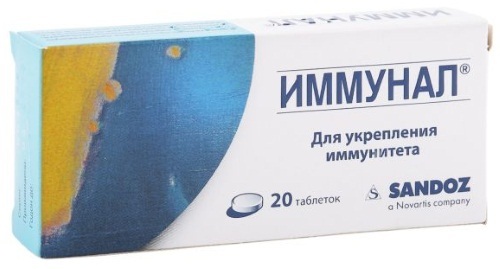
- Eleutherococcus tincture - a liquid extract with an immunostimulating, calming effect. Assign with increased excitability, general weakening of the body, endocrine disorders. Shown for children over 12 years old. Take 15-20 drops per 100 ml of water 2-3 times a day.
- Kalanchoe extract. It has anti-inflammatory and immunomodulatory effects. Stimulates regenerative processes in tissues and intracellular metabolism. It is prescribed for destructive pathologies of the gastrointestinal tract, suppressed immunity, bacterial and viral infections. Available in liquid form. Dosage regimen for children from 12 years old - orally 1 tsp. 3-4 times a day.
Any of these drugs will be a good alternative to Echinacea. You can use drops for children based on pink rhodiola - an adaptogen plant with anti-inflammatory properties. Such drugs are used for frequent colds to strengthen the immune system.
Echinacea video
The medicinal properties of Echinacea:

